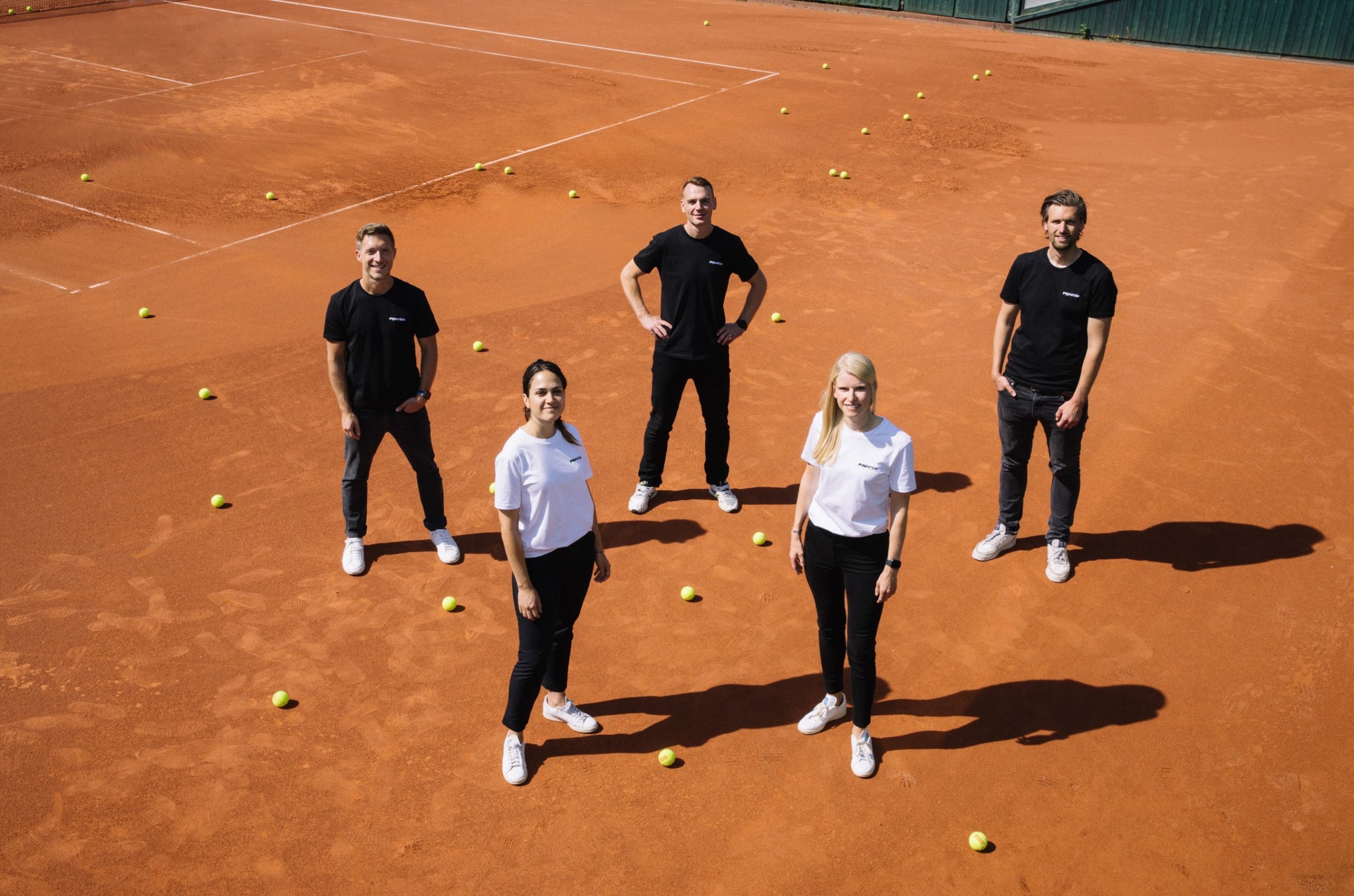- The funding round is backed by prominent sports personalities and entrepreneurs, such as One Football’s Lucas von Cranach, Sandbox COO & Co-Founder Sebastian Borget and tennis professional Dominic Thiem
- The platform enables sports fans to invest in athletes and participate in their real-world financial success
- Athletes gain access to a new form of financial resources and unlock emotional value by making fans part of their team
NFT-based athlete investment platform FANtium (fantium.com), today announced a private pre-seed round of EUR 2 million (USD 2 million). The funding comes from prominent web3 business angels, among them Sandbox COO & Co-Founder Sebastien Borget, Sorare growth lead Brian O’Hagan, Argent Co-founder & CEO Itamar Lesuisse and Spatial Co-founder Anand Agarawala. Further, the company receives backing from well-known sports personalities and entrepreneurs, including Austrian tennis professional, US Open Champion Dominic Thiem, and OneFootball founder Lucas von Cranach.
FANtium will start to democratize athlete financing, allowing fans to invest in athletes and participate in their real-world financial success. Fans can invest in their seasonal earnings, as well as in career earnings of up-and-coming younger talents. Invested fans are entitled to a share of the athlete’s real-world earnings in the form of prize money and sponsorship deals. On top of the financial benefit, fans can unlock emotional value by becoming part of the athlete’s close community with access to unique fan perks – connecting them with the athlete in a whole new way.
Professional athletes can tokenize a certain amount of future season’s prize money and sell those shares as NFTs to fans via the FANtium’s platform. They can reinvest the upfront revenue earlier, e.g. by hiring their fitness coach or physio, and mitigate risks such as injuries on a seasonal basis.
Young talents can tokenize a limited share of their future earnings to raise funds they need to make it to the top. It solves a major challenge faced by many talents across different sports: they have the talent but lack the access to money to become entirely professional. Especially individual sports such as tennis, golf or racing are expensive to be done early on and require significant money for traveling, coaching and equipment. Access to money is crucial, even for young players, who are among the best in their age group.
“A season on the professional tennis tour is costly. Many young players are struggling a lot, especially when their parents cannot afford their career”, says Dominic Thiem, Austrian tennis professional who was among the best in his age group and later won the US Open. “A lot of young talents are forced to retire from the sport in early stages because they have trouble affording their career. Even finding a supporter or sponsor can be very tough.”
That is what FANtium wants to change. “If you think about it, it doesn’t make sense that only companies have access to money. There are billions of sports enthusiasts in the world who would love to invest in these athletes and become part of their journey,” says Jonathan Ludwig, Co-founder and CEO of FANtium. “By connecting these talents with sports enthusiasts, we are making the sport more equal because as a young athlete, your success will no longer depend on your financial background.”
Similar to music NFT marketplaces like Royal, selling song rights as NFTs, FANtium uses NFTs as the underlying technology enabling fans to invest in athletes and receive a share of the earnings the athlete is making. The company envisions establishing athlete investments as a new asset class and then expanding to other sports rights categories.
Given the latest crypto regulations, whether such NFTs will be considered securities remains to be seen, including the implications that will follow for platforms and users alike. However, FANtium seems to be following a new approach, launching the platform in a security-compliant way, starting in Switzerland.
“We believe that regulation will be good for the NFT industry overall, as it provides trust and transparency for NFT owners”, says Ludwig. “The dynamic and fragmented regulatory environment with specific requirements in each jurisdiction will remain one of our biggest challenges in the next few years, especially since our goal is to provide frictionless access to athlete investment in a compliant way.”
The company plans to launch the first athlete drop in Q4 of this year, leveraging athletes’ communities to bring early sports fans to the platform. Users can currently sign up for early access on the website.
FANtium was founded by a team of sports and web3 enthusiasts with extensive experience in company building and scaling. It is led by Jonathan Ludwig, who previously built and exited two startups in the loyalty space and invested early in multiple successful web3 startups such as Sorare. The founding team brings combined previous experience from, among others, BCG and Rocket Internet.









